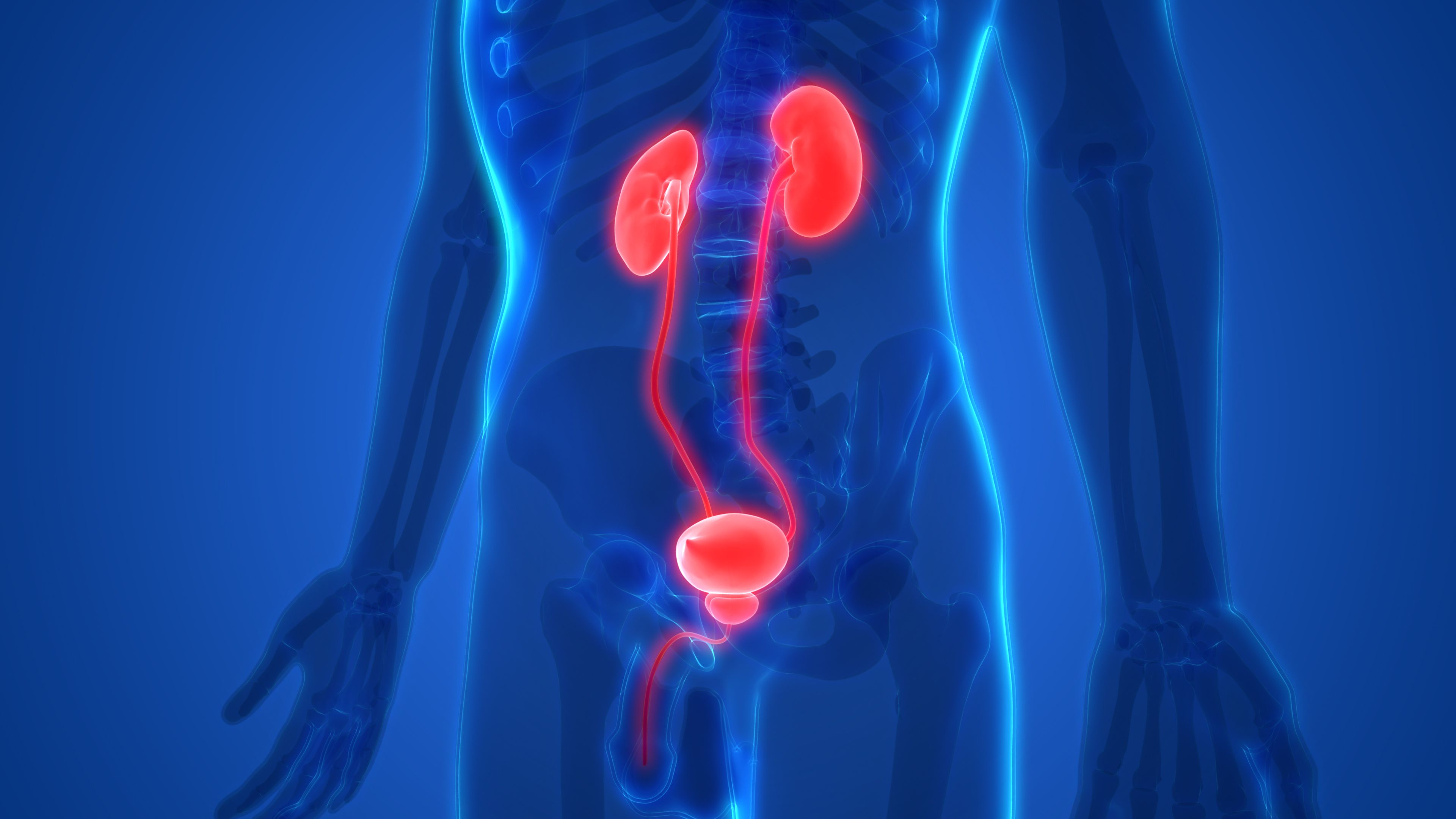Nadofaragene Firadenovec-vncg Dosed in First Commercial Patient With NMIBC
Nadofaragene firadenovec-vncg received FDA approval for patients with high-risk, BCG-unresponsive non-muscle invasive bladder cancer in 2022, and is now being evaluated further in the ABLE-41 trial.
Human Body Organs Anatomy © magicmine - stock.adobe.com

The first patient with high-risk Bacillus Calmette-Guérin (BCG)-unresponsive non-muscle invasive bladder cancer (NMIBC) was treated with nadofaragene firadenovec-vncg (Adstiladrin) as part of the Adstiladrin early experience program which was announced earlier this year.1
Doses of nadofaragene firadenovec-vncg have been made available to clinical trial sites that are participating in the phase 3 study of the therapy (NCT02773849). A mix of community clinics with a high number of eligible patients with NMIBC also have access to this therapy.
Though the Adstiladrin early experience program is temporary, additional clinics will be able to participate as manufacturing volumes increase over time.
“[Nadofaragene firadenovec-vncg] represents a major advancement in the current treatment landscape for people living with high-risk NMIBC who may be facing removal of the bladder,” said Elizabeth Garner, MD, MPH, chief scientific officer at Ferring Pharmaceuticals, in a press release. “The Astiladrin early experience program and ABLE-41 [United States real-world evidence] study allow us to address pressing patient needs while collecting data on its use in a real-world setting, further expanding on what we’ve learned in our phase 3 clinical program.”
Previously in December 2022, nadofaragene firadenovec-vncg was approved by the FDAfor the treatment of adult patients with high-risk, BCG-unresponsive NMIBC with carcinoma in situ (CIS) with or without papillary tumors.
Nadofaragene firadenovec-vncg is the first and only FDA-approved intravesical gene therapy for adults with NMIBC who no longer respond to standard therapy.
This therapy is being further assessed in ABLE-41 (NCT06026332), a real-world evidence, multicenter, prospective, non-interventional trial which aims to evaluate early use of nadofaragene firadenovec-vncg for this patient population in the United States.2
An estimated 800 patients will be enrolled in the study if they are aged 18 years and older and have prescribed and scheduled treatment with nadofaragene firadenovec-vncg per physician discretion or have been treated with the first instillation of nadofaragene firadenovec-vncg after September 5, 2023, but prior to site activation.
Patients who are currently enrolled in a clinical trial, have been previously treated with nadofaragene firadenovec-vncg, or are pregnant or breastfeeding are not eligible for enrollment in the study.
Primary end points being evaluated in the study are complete response (CR) at first evaluation from first nadofaragene firadenovec-vncg installation and at any time within 1 year of first nadofaragene firadenovec-vncg treatment. Secondary end points include CR, high-grade recurrence-free survival, incidence of and time to cystectomy, progression-free survival, overall survival, mortality rates due to bladder cancer, adverse events, and more.
The estimated study completion date is December 31, 2026, and the trial is actively recruiting patients.
“The first patient dosed with Adstiladrin marks an incredible milestone for Ferring, the bladder cancer community and the patients we aim to serve,” said Shetal Vyas, vice president, general manager, Uro-Oncology at Ferring Pharmaceuticals, in a press release.1 “Making this novel and efficacious intravesical gene therapy commercially available for patients underscores our commitment to changing the trajectory of NMIBC. We will continue bringing available doses of Adstiladrin forward responsibly as we scale up manufacturing.”